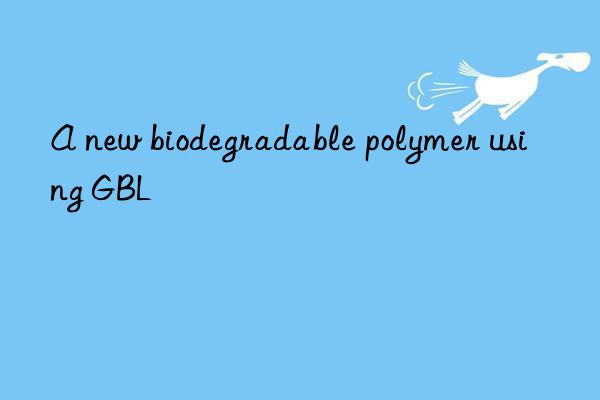
Juyitang Xiaobian (WeChat ID: pu138com) WeChat, grasp polyurethane dynamics, grasp Future!
Researchers from Colorado State University have developed a new biodegradable polymer using the monomer γ-butyrolactone (GBL). The new plastic transforms back to its original molecular state when heated. This new type of plastic will change the way people use plastic, it is fully recyclable, reusable, biodegradable and has no petroleum components.
The monomer GBL (butyrolactone), found in cleaning fluids and superglue, has been shown in the past to be too stable to be used in plastics, but this time the researchers have breakthrough.
Past studies have shown that monomeric GBL cannot be converted into polymers based on measured reaction thermodynamic data. Chemistry professor Chen Youren (transliteration) and his team questioned previous reports and tried to intensify monomeric GBL into polymers, resulting in a breakthrough.
The resulting new polymer is called poly(GBL), and when heated at 220-300°C or 420-570°C for 60 minutes, the polymer will change back to monomer GBL. Professor Chen and his team are determined to create biodegradable polymers and plastics to replace the current petroleum-based plastics.
The most common man-made polymer is plastic. Synthetic polymers such as polystyrene and polyethylene largely pass through landfills and oceans. Technically speaking, these plastic packages and bottles labeled "recyclable" are only reusable to a certain extent. However, it is impossible to return these used plastics to their pristine condition and make new products.
"The latest trend is to produce biorenewable and biodegradable polymers and plastics. However, this is only a part of the solution in terms of raw material recycling, because degradable polymers do not need to be recycled." Professor Chen said explain.
We manufacture more than 2.7 million tons of plastic every year, of which around 180,000 tons end up in the ocean. It is estimated that each person globally consumes approximately 200 pounds of plastic products made from man-made polymers each year.
"During my 15 years at CSU, this is the most exciting work my team has done." Professor Chen is also the winner of the US President's Green Chemistry Challenge Award.
Tulane University chemist Scott Grayson, who was not involved in the study, praised Chen's research and described Chen's findings as "a good step in the right direction." Grayson Liken the discovery of such biodegradable, bioavailable and recycled polymers in this field to the discovery of the Holy Grail.



 微信扫一扫打赏
微信扫一扫打赏
